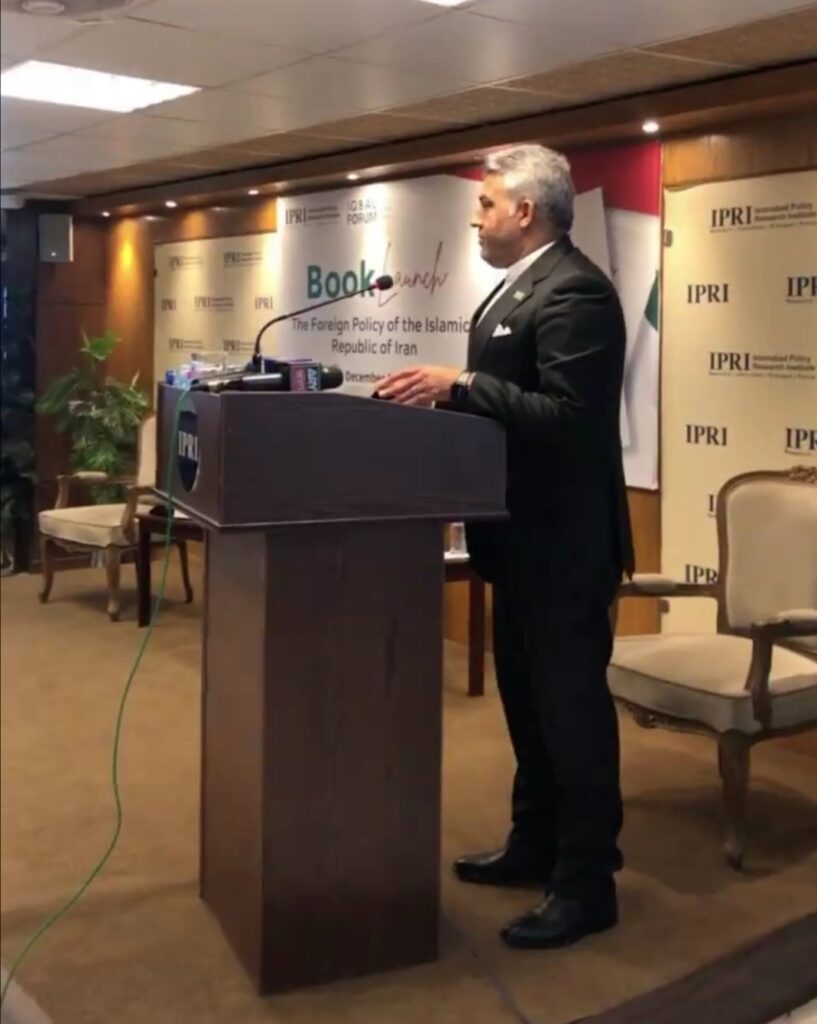
“IPRI-Iqbal Forum: Book Launch — The Foreign Policy of the Islamic Republic of Iran”
ISLAMABAD : A first of its kind comprehensive book in English language on Iranian Foreign Policy was launched by Iqbal Forum in collaboration with Islamabad Policy Research Institute (IPRI). The book titled, “The Foreign Policy of the Islamic Republic of Iran,” has been authored by well-known linguist and professor of International Relations at Tabatabayi University, Dr Jalal Deghani Firouz Abadi, and duly translated by Dr Muhammad Hussain Baqeri. The original book in Persian language. Mr Baqeri is head of Iqbal Forum and is an author himself of many books on ‘Iqbaliyat’.
The book dwells into the policy perspective of the Islamic Republic for the last four decades, and does a catharsis in an independent manner without taking any sides. It is a debut work on foreign relations of Iran after the Revolution of 1979, and all aspects on domestic, economic and cultural domains that influenced the foreign relations have been discussed at length.
It explores the theoretical approaches to foreign policy, and broadly looks at the tangible and intangible resources of the country, which has been under sanctions and international pressure for decades.
The book also talks about the discourses of the Islamic Republic, and articulately divides it in sections of defence, reformation and the path the country has taken in building it as a self-reliant state.
It is a great read for scholars, academia, media people and all those who objectively want to learn about the trajectory of Iranian foreign policy both pre-revolution and post-revolution.
Dr Baqeri, while elucidating on the book chapters in his presentation, said that it is a “must read” for people who want to grasp the troughs and crests of Iranian policy, and that too in the mist of bias set in by the West in the wake of sanctions on the Islamic Republic.
He said all eras since President Bani Sadr to President Ebrahim Raisi have been discussed in detail, showcasing the elements at home and abroad that have come to shape and influence the policy.
To a question, he said that there are no sanctions on Iranian gas and electricity, and Pakistan can benefit from it. He, however, said that the sanctions critically target infrastructure, and are meant to deprive Iran from developing as a vibrant nation-state.
He took pride in saying that Iran has come a long way, and sanctions and embargoes have failed to dent to its progress in the comity of nations.
He urged intelligentsia in Pakistan to visit Iran frequently and experience the change that has set in. He agreed that dissent is there on foreign policy, and this is why it is not static as the Islamic Republic has evolved a dynamic and two-way relationship with member states.
The book will soon by translated in Urdu language, too.